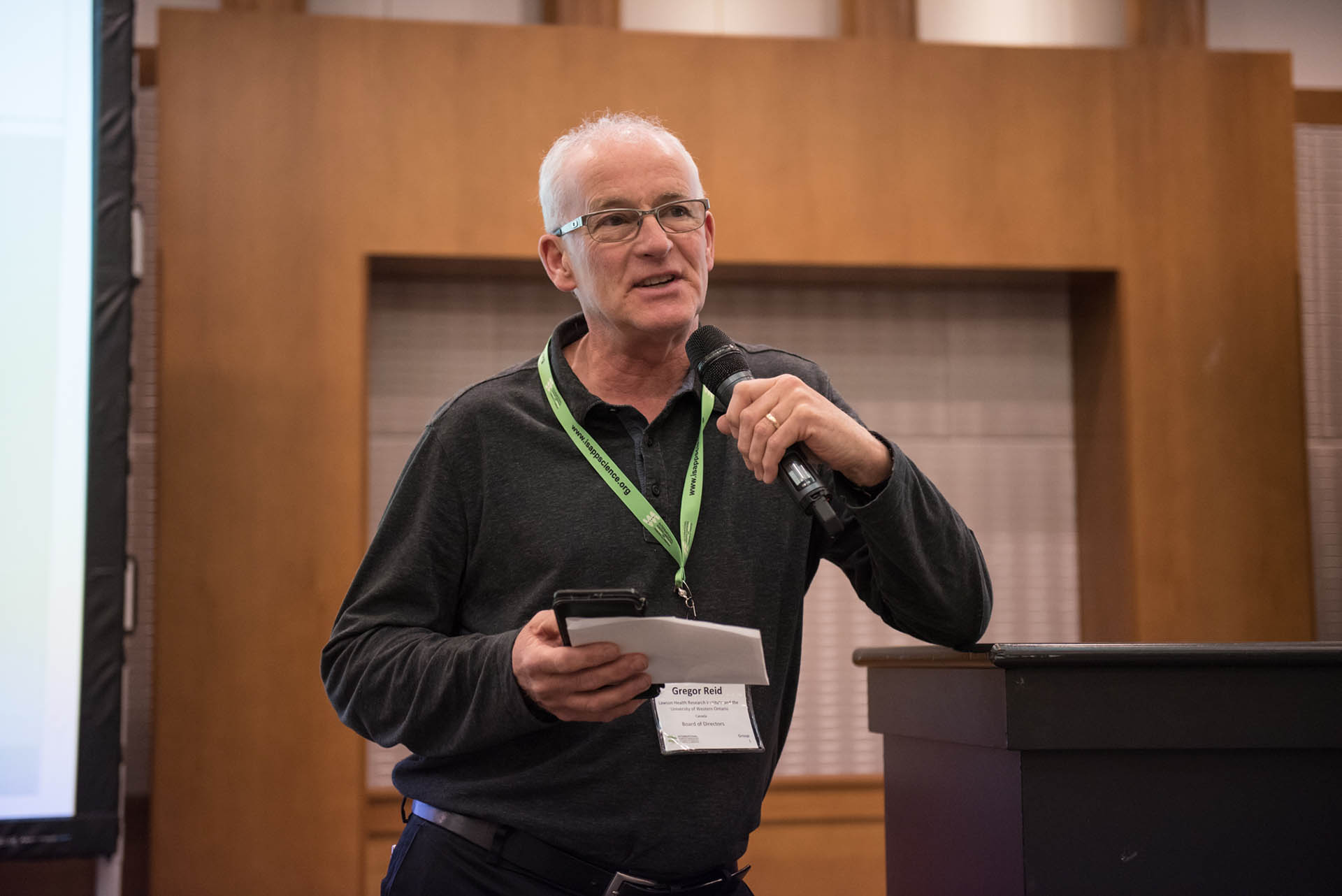Photo by http://benvandenbroecke.be/ Copyright, ISAPP 2019.
“We need a way to facilitate the gathering of the different scientists working in the probiotic and prebiotic fields.”
This was what Prof. Glenn Gibson and Dr. Mary Ellen Sanders realized with certainty in New York in 1999 when they discussed the idea of a scientific association dedicated to probiotics and prebiotics. Few conferences on probiotics or prebiotics were being held anywhere in the world, despite rapid growth of the research. Scientific studies were on the rise in many different fields – microbiology, food science, biotechnology, microbial genetics, gastroenterology, pediatrics, and biochemistry, to name a few – and networking among these scientists would surely advance the field.
At the 2000 Fermented Foods and Health meeting in New York, Gibson and Sanders presented a group of academic and industry scientific colleagues with the idea of a multidisciplinary scientific organization dedicated to advancing the field of probiotics and prebiotics. The idea was met with enthusiastic support, and the group envisioned that the organization would provide a core group of dedicated scientific experts so that emerging issues, whether scientific or regulatory or marketplace issues, could be rapidly addressed through the ISAPP network.
ISAPP was incorporated as a non-profit public service organization in February 2002 with an all-academic board of directors, and with funding and logistical support from industry scientists. Prof. Gregor Reid hosted the organization’s inaugural global meeting in London, Ontario, Canada, May 3-5, 2002. The meeting came at a pivotal time for probiotics, since the FAO/WHO working group met on May 2 to write the landmark “Guidelines for the Evaluation of Probiotics in Food”, one year after the now-globally-recognized definition for the word “probiotic” was proposed.
Sanders served as founding president of ISAPP until 2006. Prof. Gibson is a founding board member who serves on the board to this day. The organization founded and funded the ISAPP Students and Fellows Association in 2010, in order to welcome the next generation of probiotic and prebiotic scientists into the ISAPP community. As the organization has evolved, it has also recognized the urgent need for strong, science-based communications for consumers and healthcare providers; the organization invests in creating these materials in order to reach broader audiences and promote scientific thinking about probiotics and prebiotics.
ISAPP remains unique in the world: because it is driven by academic scientists, ISAPP’s activities have always been for the benefit of the field as a whole. ISAPP serves all of its members by maintaining a degree of separation from industry; while industry members support ISAPP’s activities, the academic board directs them.






